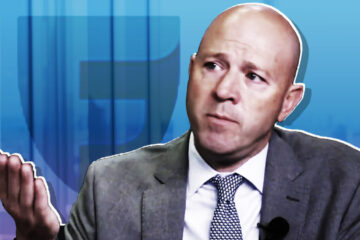It can be hard for American companies to even know if Russian oligarchs have invested in their business.
Many American companies likely have no idea that Russian oligarchs have invested in their business, an expert said Friday, but they had better find out quickly if they hope to avoid any shrapnel from international sanctions.
Luciano Racco, counsel and co-chair of the trade sanctions and export controls practice at law firm Foley Hoag, told TheStreet in an interview that because most ultra-wealthy Russians invest opaquely, finding out if an oligarch owns part of your business can be tricky
How Can You Know if an Oligarch is Part of Your Company?
“It is often not easy to know if an oligarch is part of your company as oligarchs often hold assets through a veritable matryoshka doll of related entities” Racco said.
“The Russian elites targeted by sanctions have ownership interests in numerous investments in nearly every sector of the global economy.”
Racco said that while most of the recent headline-grabbing news about oligarchs has been focused on their mega yachts and fancy real estate, there has been much less scrutiny on areas where they may be heavily invested.
Those include investments in emerging technology, health care and financial services companies, which Racco said may be more significant to the economy as a whole.
“In many cases, a sanctioned oligarch may have an ownership interest in an investment company, which in turn holds ownership interests that cascade through a series of holding companies, one of which may then hold an ownership interest in a U.S. company,” Racco said.
“In this situation, the sanctioned person holds an indirect ownership interest in the U.S. company, despite the multiple layers separating the U.S. entity from the sanctioned individual, which could have a significant impact on the company.”
What if An Investor is Sanctioned Outside the U.S.?
Some companies may feel safe because they haven’t seen any of their known investors appear on major sanctions lists from the United Kingdom, the European Union or the U.S.
But many of these oligarchs have been sanctioned in other places where the company holds risk, including Canada, Australia and Japan. There is also the chance that a wealthy Russian sanctioned in one allied country isn’t sanctioned in another, making a thorough compliance review critical.
“As a result, for international businesses operating in multiple jurisdictions, having a robust screening system that captures global sanctions is crucial, it is not sufficient to only screen investors, both direct and indirect, against U.S. sanctions lists,” Racco said.
Experts recommend that if you are combing through investors that have complex or murky structures putting money into a company, it is important that you are able to “look-through” to the investor.
“Remember, even indirect interests held by sanctioned persons through non-sanctioned investment vehicles count towards OFAC’s 50 Percent Rule. OFAC is the U.S. Treasury Department’s Office of Foreign Assets Control that administers the main U.S. sanctions programs,” Racco said.
“If the ownership interests of multiple sanctioned persons add up to 50% or more of a company’s equity, the 50 Percent Rule is triggered and the company itself becomes sanctioned, even though it may not be specifically included on a sanctions list,” Racco said.
What Does it Mean For a Company if an Investor is Sanctioned?
Strict reviews of who has put money or time or assets into your business are crucial right now, experts said, because a company might still be able to remove an oligarch’s stake and thus avoid any rough-and-tumble enforcement from international regulators.
“If you identify Russian oligarchs, their holding companies, or other high-risk persons in your cap table, evaluate their ownership interests and determine what steps can be taken to dilute or remove their interests,” Racco said.
“Even if not currently subject to sanctions, investments where the beneficial owner is a Russian oligarch may be high-risk if the oligarch is publicly identified as a close associate of President Vladimir Putin,” Racco said.
What Does the 50% Rule Mean?
America uses what’s known as the “50% Rule,” which means that if an oligarch owns 50% or more of something, that entity itself then becomes blocked and can be sanctioned, even though it might not appear of a sanctions list.
“This also applies if a sanctioned person is investing indirectly through non-blocked entities,” Racco said. “As a result, obtaining accurate beneficial ownership information is critical.”
The application of the 50% Rule is painful for business, and it’s meant to be. If something is affected by it — be it real estate, a business stake or even just a Gucci bag — it is immediately subject to the same freezing prohibitions as the sanctioned person.
Then almost all transactions are prohibited without an OFAC license.
“Obtaining a license from OFAC is easier said than done and it can take many months, if not years, even to receive a determination,” Racco said. “The chances of obtaining a Russia-related license during the current conflict in Ukraine is particularly low.”
What Are Your Legal Obligations?
The upshot of all this is clear: If a company thinks it might have any exposure to wealthy Russian investment, sanctioned or unsanctioned, it should conduct a legal review as soon as possible.
“If a sanctioned person already holds an ownership interest, companies should seek counsel to determine if there is a general license that would allow for divestment or ‘winding-down’ transactions with the sanctioned person,” Racco said.
“If not, a specific license from OFAC may be required in order to remove or dilute the problematic ownership interest, or to engage in transactions that would require approval from the sanctioned investor.”


